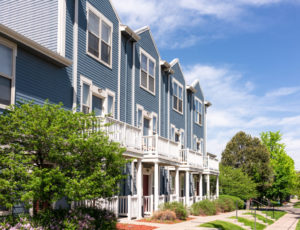 By Peter Boogaart, Disability Housing Task Force member
By Peter Boogaart, Disability Housing Task Force member
I was asked in 2018 to join our Disability Housing Task Force (DHTF). Years ago, my first real job as a young guy fresh out of college was working for an agency that provided services to adults with disabilities. I spent the next seven years there.
I presumed that this old experience was my link to the DHTF. That proved to be true. What I didn’t know then, however, was that housing itself would be such a difficult issue. Finding housing for disabled persons is a big deal and evidently more difficult than “just build something!”
Working with the DHTF exposed me to the challenge of affordable housing throughout our community. If you heard Ryan Kilpatrick’s presentation in Adult Education recently, you know that this is a troubling issue for Holland at large.
Housing issues expose a lot of sublimated assumptions about value: property values, aspirational values, social values, security values, and class values.
Whether or not we can articulate our feelings, housing issues reveal our beliefs about what value looks like. Since 1945, value looks like a private house on a private lot being served by public utilities somewhere in the suburbs. Oh yeah, and that white picket fence. That’s the mental picture—usually marketed as the American Dream.
Hard to believe now, but that wasn’t always the American Dream. The Dream was largely the creation of post-war federal government policy. Whether you think of Uncle Sam’s role in terms of investment or subsidy, highway extensions and sprawling utility lines weren’t going to happen on their own. For those of us who grew up with this model, it just seemed normal.
As a member of the DHTF, I have to bring something else to this discussion. We’re a faith community. What has faith got to say about value? Or about what I ought to value? Are my intuitive feelings about housing congruent with my values? What’s my faith responsibility when I recognize that potential changes in housing policy evoke feelings of fear or insecurity?
I’m all for good debate and creative thinking when it comes to housing policy. And I’m also for caution; you don’t throw everything out just because someone has a new idea. Somewhere in the tension between those polarities is a good, workable solution.
I’m willing to say, however, that nobody will find that good solution unless they first recognize where security lies; and it’s not in the house. People of faith know that security is based on God’s promise—I will never leave you or forsake you.
If you feel secure, it’s okay to muddle through different options. It’s okay to try something different. There are other models for housing and land use. We could change zoning rules and actually improve neighborhoods. Here’s an article that I came across online: “What We Can Learn from the Skinniest Home in London.” Check it out. It may help you expand your thoughts about how to use our urban spaces.
